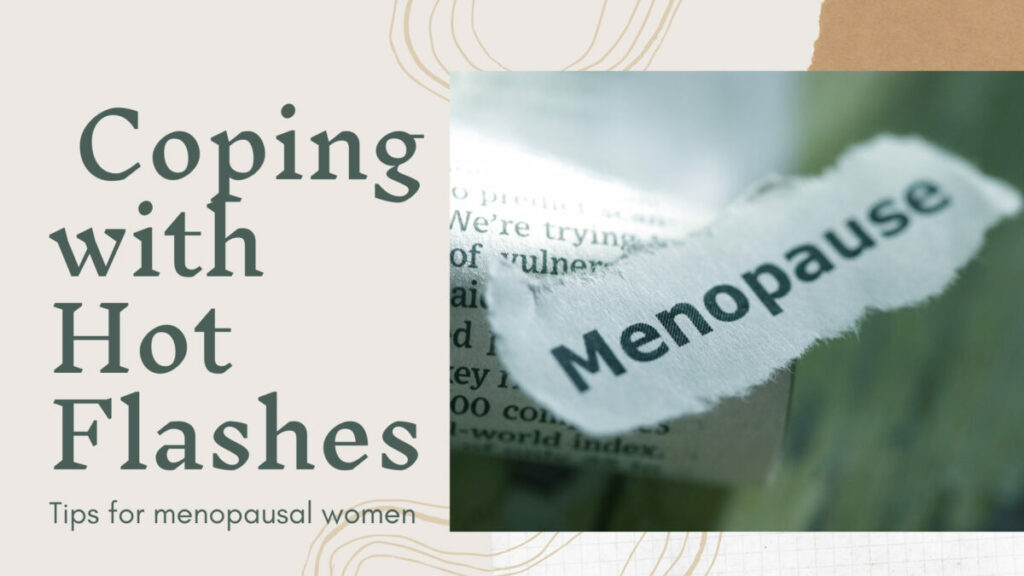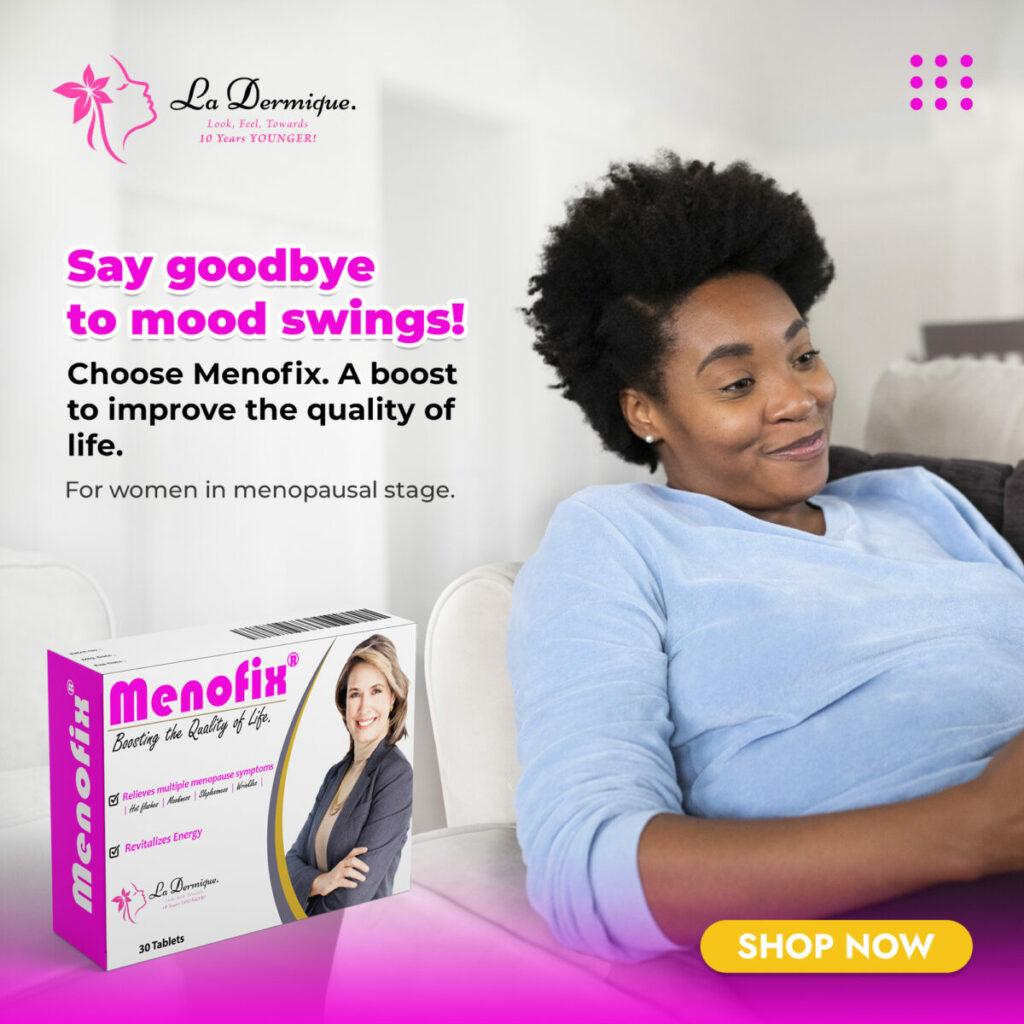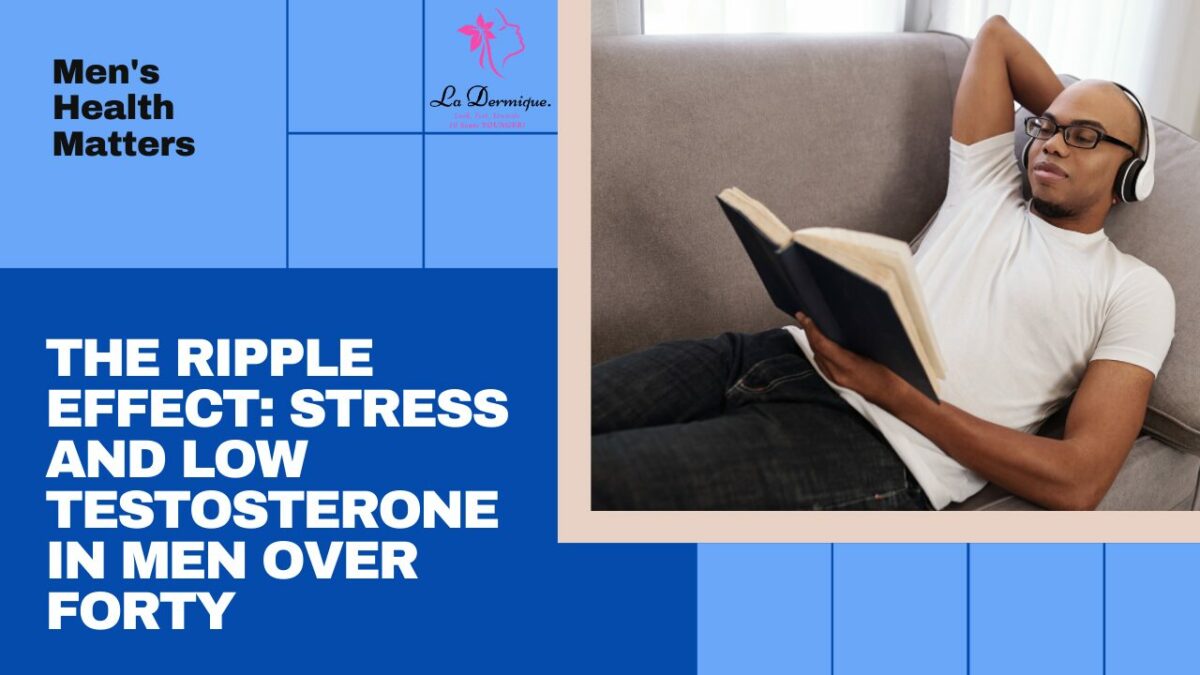
Look 10 Years Younger
Table of Contents
Definition of hot flashes
What is a hot flash? Tips for menopausal women
A hot flash is the sudden feeling of warmth in the upper body, which is usually most intense over the face, neck, and chest. Your skin might redden, as if you’re blushing. A hot flash can also cause sweating. If you lose too much body heat, you might feel chilled afterward. Night sweats are hot flashes that happen at night, and they may disrupt your sleep.
Hot flashes can be uncomfortable and can make it difficult to go about your day-to-day activities. But there are strategies and tips for menopausal women that you can use to cope with hot flashes and make menopause a bit easier. Here are some tips on menopause to help you manage your hot flashes.
Tips for menopausal women to overcome hot flashes
Exercise Regularly
Exercise is a great way to manage hot flashes. It helps to regulate your body temperature, soothe stress and anxiety, and improve your overall well-being. Aim for 30 minutes of moderate physical activity a day.
Exercise can be a great way to reduce hot flashes during menopause. Exercise helps to reduce stress, which can worsen hot flashes. Physical activity also helps to regulate hormones, which can reduce the intensity of hot flashes. Exercise can also help to improve the quality of sleep, which is important for managing hot flashes. Additionally, exercise can help to improve overall health and well-being, which can help to manage the symptoms of menopause.
Tip: For consistency in exercising, choose an activity you enjoy doing such as dancing or walking. Also involve people that motivate you to do so every day.
Stay cool
One of the simplest strategies to cope with hot flashes is to stay cool. Wear light and loose clothing, keep the temperature in your bedroom cool, take a cool shower or bath, and avoid activities that will make you sweat.
Understanding your body and staying prepared will do the trick. When a hot flash is coming on, dress down, go to a window, sip a cold drink, or practice a relaxation exercise in a cool place.
Avoid triggers
Certain foods and drinks like caffeine can trigger hot flashes, so it’s best to limit or avoid them. Alcohol, spicy foods, and hot drinks can also make hot flashes worse.
Eat small, frequent meals. The heat generated by digesting a large meal can sometimes bring on a hot flash.
Hot weather, wearing tight clothing, and hot baths and showers can also worsen hot flashes. Hormone therapy, such as estrogen therapy, can help reduce the severity of hot flashes. It can also be helpful to keep cool, wear light and loose clothing, practice stress reduction techniques, and limit or avoid triggers that can worsen hot flashes.
Watch what you eat
Eating a proper diet during menopause is key to helping reduce the severity of hot flashes. Eating foods that are higher in phytoestrogens, such as soy, flaxseed, sesame seeds, and nuts, may help lower estrogen levels and reduce the occurrence of hot flashes. Eating plenty of fresh fruits and vegetables, as well as foods rich in vitamins, minerals, and antioxidants, can help reduce the frequency and severity of hot flashes. Eat foods rich in calcium.
Eating a diet that is low in saturated fats and rich in healthy proteins, such as lean meats and legumes, is also beneficial. Additionally, limiting the intake of caffeine and alcohol can help reduce the occurrence of hot flashes. Eating a diet rich in these foods can also help improve overall health and well-being, as well as reduce the risk of other chronic illnesses.
Supplement your diet
Menopause supplements are dietary supplements that are specifically designed to help women cope with the symptoms associated with menopause. These supplements usually include a variety of vitamins, minerals, herbs, and other natural ingredients.
Many of these supplements have been scientifically studied and shown to help with hot flashes, mood swings, night sweats, and other menopausal symptoms. One of the most helpful menopause supplements is black cohosh, which has been used for centuries to help reduce hot flashes and night sweats.
Other helpful supplements include soy isoflavones, which can help reduce the frequency and duration of hot flashes; red clover, which helps with hot flashes, mood swings, and night sweats; and dong quai, which can help reduce the severity of hot flashes and night sweats. Taking these supplements can also help improve mood, reduce fatigue, and help with vaginal dryness.
Looking for something to reduce hot flashes and night sweats?

Menofix: Natural menopause relief
Natural menopause relief
Get relief for menopause symptoms such as night sweats, hot flashes, brain fog, heart palpitations and sleeplessness. Menofix is a dietary booster that contains all natural menopause relief ingredients.
This is the secret of an easy transition:
Get our offer today
BUY 2 BOXES AT KSH 4000
LIMITED OFFER, LIMITED TIME
OFFER VALID WHILE STOCKS LAST



